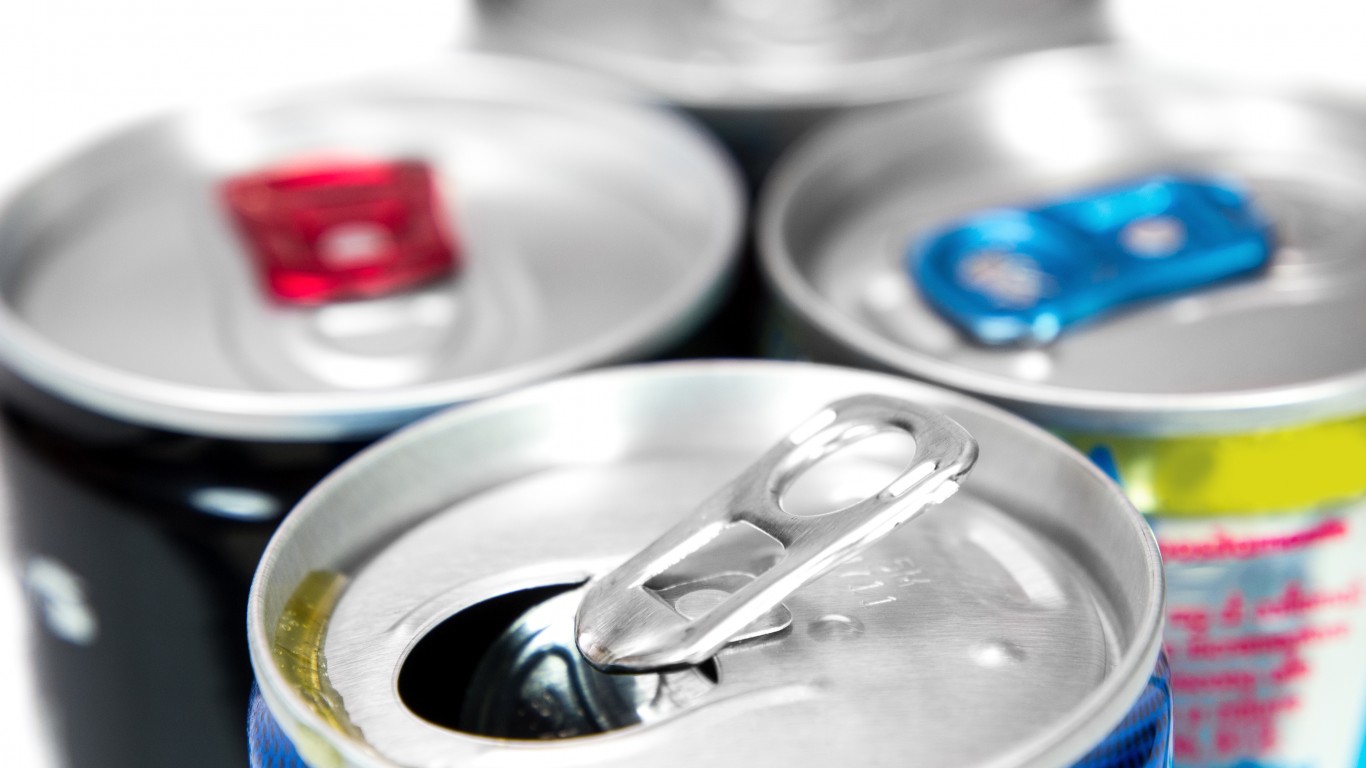Special Report
The 17 Worst Myths About Boosting Metabolism People Still Believe

Published:

Metabolism is a complex chemical process. In simple terms, it’s the process in which the body converts foods and drinks into energy. People often put the blame on their metabolism if their weight loss journey hasn’t been easy. That may be because a lot of what they know about it are myths that don’t seem to go away.
To help clear the air of some of the most stubborn weight loss myths about metabolism, 24/7 Tempo reviewed recent health science and interviewed Liat Nadler, clinical nutritionist at Just Eat Well in Portland, Oregon.
So much has been written about metabolism online that it’s hard to separate fact from fiction. While it’s true that metabolism is linked to weight, plenty can be done to influence how fast or slow it is. Many factors influence one’s basal metabolic rate — or how many calories a person burns a day at rest. They include age, if you stop being physically active, sex, and muscle mass, Nadler noted.
The rule is that to lose weight one has to consume fewer calories than the body burns. The second part of that rule is where people get confused. They try different ways to lose weight, inevitably making some mistakes in the process. But mistakes can have the opposite effect — these are 28 weight loss myths that pack on pounds.
Click here for 17 of the most widespread myths about boosting your metabolism

Metabolism is genetic and you can’t do anything about it
This is mostly false, Nadler explained. While it’s true that genetics are a factor in one’s metabolic rate, a person can boost it by — in addition to staying active and eating a healthy diet — building muscle, Nadler added.
Many factors influence the metabolic rate, including age, gender, amount of physical activity, and hormone function. Muscle mass is a huge factor, too. “Muscle burns more energy than fat.” This means that people with more muscle need more energy to function than those with less muscle mass, thus their metabolism tends to be faster.
[in-text-ad]

Thin people have faster metabolisms
The claim that slim people have faster metabolism is a stubborn myth. People repeat it over and over again, but that doesn’t make it true. “A thinner body means less weight, which means the body needs less energy to function,” Nadler said.
In other words, larger bodies have higher resting metabolic rates because they need more energy to carry out basic functions. Body composition plays a big role in how fast metabolism is. Muscle tissue burns more calories than fat. People who weigh more tend to have faster metabolism because part of the extra weight is muscle.

Eating small but frequent meals is better than eating fewer larger meals
The idea that eating smaller meals more frequently speeds up one’s metabolic rate is one of the most persistent myths about metabolism. “Technically, there is some truth to that because digesting a meal requires energy,” Nadler said. But it’s the total number of calories consumed that determines how much energy is used by the body to break down food. “If one person has a sugary snack every hour and another has a veggie snack every hour, the latter would have better metabolism because vegetables take more time and energy to digest,” Nadler explained.

Spicy food helps boost metabolism
A person would have to be eating spicy food all day long to make a difference when it comes to boosting one’s metabolism, Nadler explained. A lot of research has been done investigating if a spicy dish can increase metabolism. The result is that while a bowl of chilli can temporarily boost the metabolic rate, it is by about 8% above the normal rate, which is considered insignificant.
[in-text-ad-2]

Green tea helps boost metabolism
Green tea has many health benefits because of its antioxidants and anti-inflammatory properties, according to Nadler. Increasing the metabolic rate, however, is not really one of them. Research published by the Cochrane Review in 2012 has found that green tea may just slightly — as in statistically insignificant — increase one’s metabolism. The difference is so small that it won’t have a lasting effect in the long run. The meta-analysis showed that regular consumption of green tea did not help people keep weight off.

Losing weight speeds up metabolism
“Less weight needs less energy,” Nadler said. A smaller body needs less energy to function and it will not burn as many calories as before, thus slowing down metabolism. This also explains why it’s harder to continue to slim down after the initial amount of weight lost, she added. “At a lower body weight, a person would burn fewer calories because they don’t need as much energy.”
[in-text-ad]

Hot sauce helps you burn fat
Hot sauce does not burn fat. “It may feel as if you are working out because you may be sweating for a few minutes,” Nadler said. “But this is not weight loss.” What the body burns also depends on what else you consume with that hot sauce. If you have rice, which has a lot of carbs, your body has no reason to burn fat, Nadler added. The body first burns simple sugars and carbs for energy because they are easier to break down. After that it goes to its fat reserves, she explained.

Energy drinks are good for the metabolism
Energy drinks are aggressively marketed with the claim that they give people an immediate energy boost and keep them stay focused. That boost, however, is short-lived, Nadler noted. Energy drinks are not helpful for general health or metabolism in the long run. They have a lot of caffeine, artificial sweeteners, and sugar, which combined may increase the risk of obesity, diabetes, and metabolic syndrome, a group of conditions that increase the risk of heart disease and diabetes.

Cardio is the best workout to boost metabolism
You need more muscle to burn more energy at rest, and you build more muscle by doing strength exercise such as lifting weights, Nadler explained. The body starts to burn fat after about an hour of moderate aerobic activity when it’s used up all the energy from sugar and carbs.
[in-text-ad-2]

Skipping meals helps with weight loss
Skipping meals may help with weight loss in the very beginning, but it’s a terrible idea in the long run, Nadler explained. After the initial weight loss, the body needs less energy because it weighs less. “But to keep losing weight you still need a calorie deficit,” Nadler said. “And that means you have to eat even less than what you’re eating after skipping meals.” This is not a sustainable eating plan. “Eventually you’re going to have to start eating,” and this is when people gain the weight back and then some, Nadler noted.

Exercise boosts metabolism long after you stop
Exercising burns more calories than sitting down, but that extra calorie burn doesn’t last for long after you stop working out. About an hour after your heart rate returns to normal and you stop sweating, your metabolism goes back to its resting rate, Nadler explained. This is why eating more because you have a session scheduled at the gym is a bad idea — you risk weight gain.
[in-text-ad]

Some foods speed up metabolism
A popular claim about foods and metabolism is that some foods and drinks can increase the metabolic rate by helping the body burn more calories and thus lose weight faster. There is little scientific proof for this, according to Nadler.
“It’s really about keeping blood glucose levels steady.” You want to eat more fruits, vegetables, lean protein, and whole grains because the body takes longer and needs more energy to break them down, she noted. This means you are full for longer and your body is burning calories at rest. Eating simple sugars leads to spikes in blood sugar levels and to quick drops. You’re hungry again and eating often, which can mess up your metabolism.

Alcohol doesn’t affect metabolism
Alcohol affects metabolism indirectly because it affects the liver. Alcohol — whether it’s a sugary cocktail or beer — is broken down in the liver. The organ, in addition to ridding the body of foreign substances like booze and extra sugar, also plays a role in how the body breaks down food to produce energy. Excessive drinking can damage the liver, which in turn may affect the way the body metabolizes fats and carbs.

Eating late at night slows metabolism down
Metabolism is slower at night when you’re stationary or sleeping, but it never stops working. Calories consumed at night won’t change how the body turns them into energy. To lose weight you have to consume fewer calories than you have burned. The body will store extra calories as fat regardless of what time you eat them. The little evidence suggesting that eating late at night is the main cause for weight gain comes from a few studies on mice.
[in-text-ad-2]

Men and women have the same metabolism
Men tend to have faster metabolism because they have more muscle mass and less body fat than women. This means that while they are at rest, men burn more calories than women. On average, men’s metabolic rate at rest is 5%-10% higher.

Breakfast revs your metabolism
Breakfast has no more special effect on metabolism than any other meal of the day, according to Nadler. Weight maintenance is more about the quality of the food and managing blood glucose levels, she explained. Thermic effect of food (TEF), which is the increase in metabolic rate as a result of breaking down the food you eat, occurs after every meal, not just the first one in the morning.
[in-text-ad]

High-intensity interval training speeds up metabolism
High intensity interval training (HIIT), which are workouts that include short bursts of intense exercise alternated with short breaks, have been very popular in the fitness industry for years. HIIT increases the number of calories burned and reduces fat, but that doesn’t necessarily translate to faster metabolism. Metabolism is influenced by muscle mass, and to build muscle you need to do strength training.
The last few years made people forget how much banks and CD’s can pay. Meanwhile, interest rates have spiked and many can afford to pay you much more, but most are keeping yields low and hoping you won’t notice.
But there is good news. To win qualified customers, some accounts are paying almost 10x the national average! That’s an incredible way to keep your money safe and earn more at the same time. Our top pick for high yield savings accounts includes other benefits as well. You can earn up to 3.80% with a Checking & Savings Account today Sign up and get up to $300 with direct deposit. No account fees. FDIC Insured.
Click here to see how much more you could be earning on your savings today. It takes just a few minutes to open an account to make your money work for you.
Thank you for reading! Have some feedback for us?
Contact the 24/7 Wall St. editorial team.